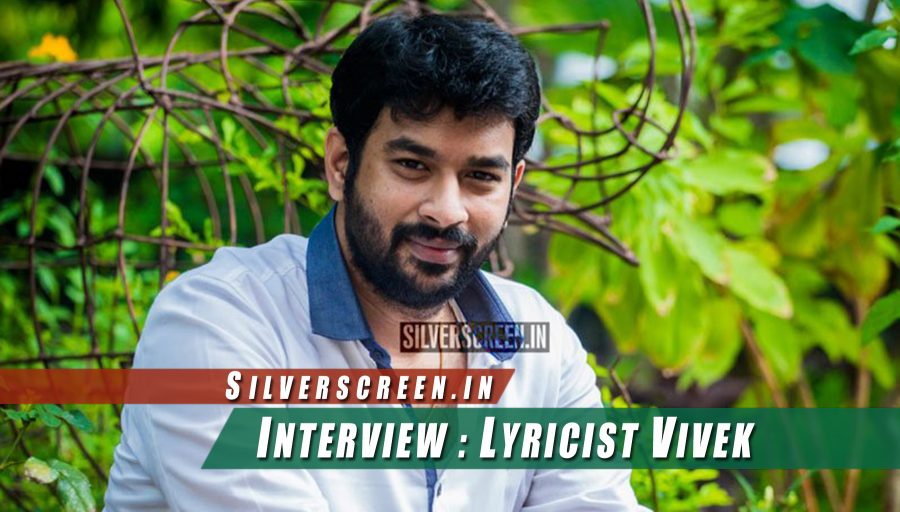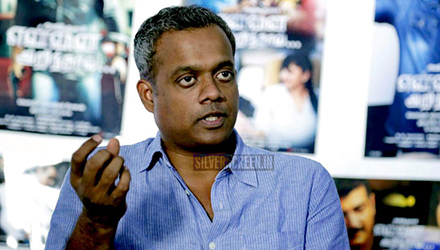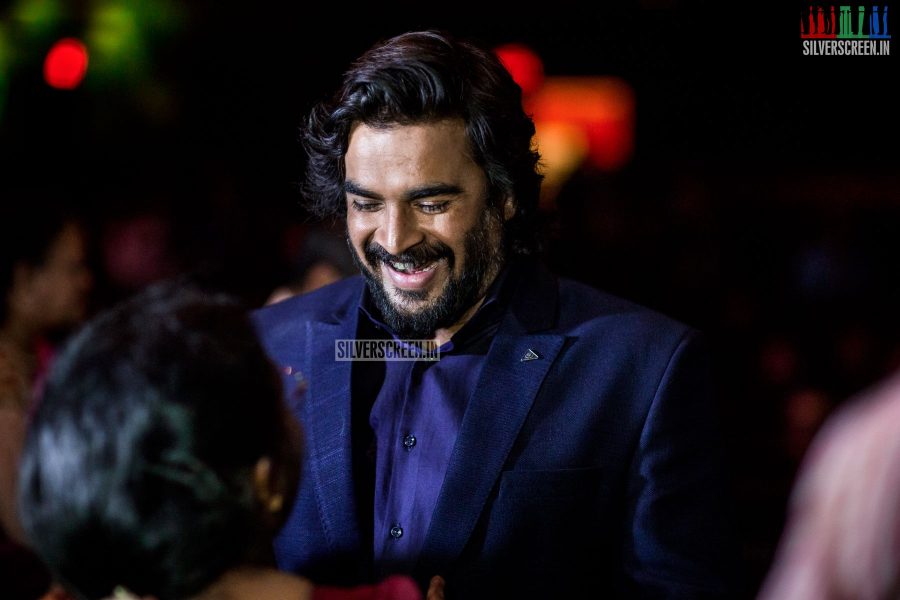At lyricist Vivek’s home, tucked away in a quiet alley in the otherwise bustling R A Puram, Chennai, we are welcomed by a larger-than-life action figure of Captain America. Slightly frightened by it, I venture to ask him about the story behind its presence there. “One of my friends worked for Disney India many years ago. This was used for the promotion of an Avengers movies. He asked me if I wanted it. My wife is quite fond of toys and action figures, so I agreed. I didn’t expect it to be this huge, though,” he said, laughing.
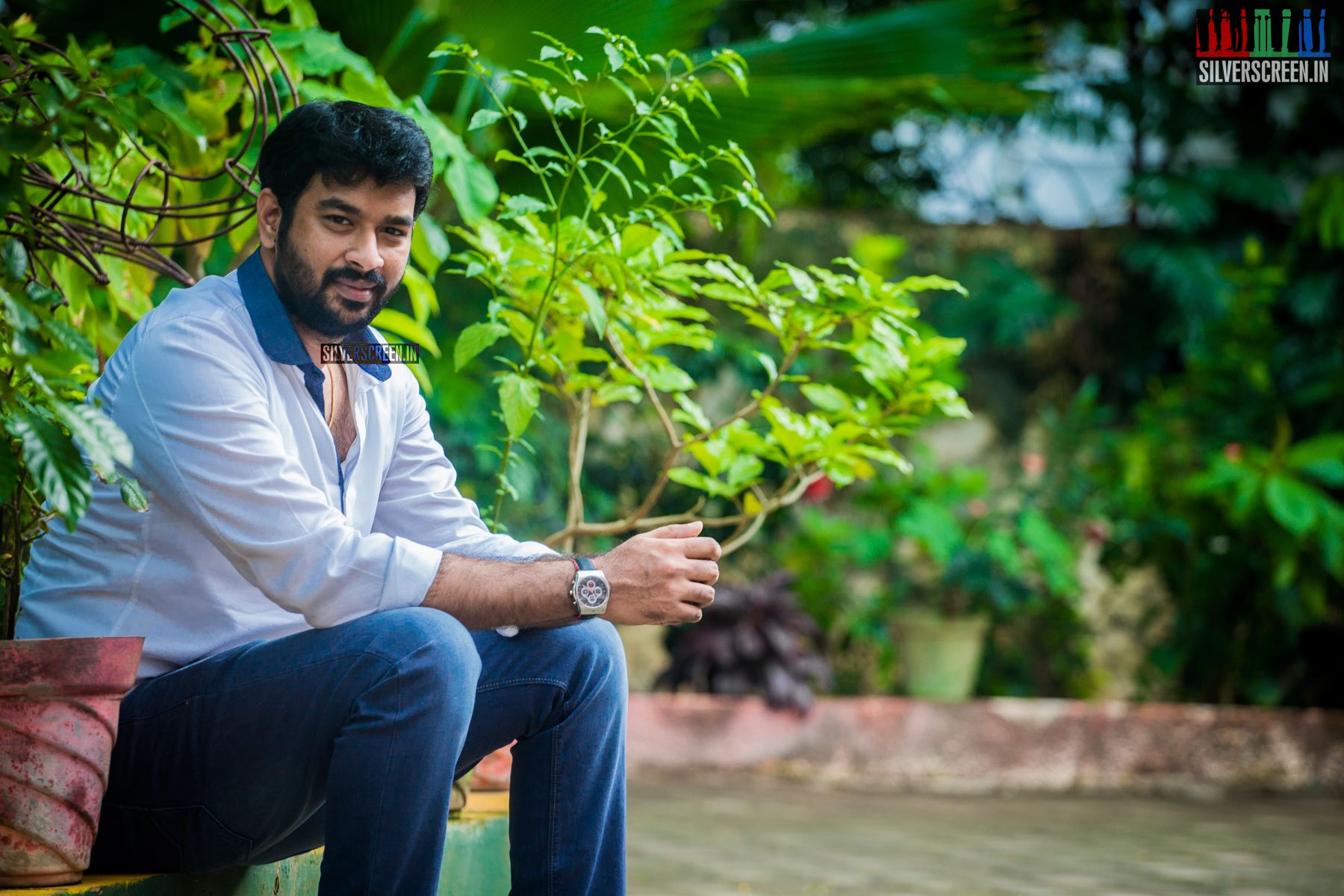 Vivek is quite new to the film industry; his relationship with it is not yet two years old. His first stint as a lyricist was with Poo Avizhum Pozhudhil, a mellifluous song from the film Enakkul Oruvan, whose tunes were composed by Santhosh Narayan. Since then, he has worked in about ten albums and is best known for his collaboration with Santhosh Narayanan. Vaadi Rasathi (36 Vayadhinile), Kadhaley Kadhaley (Indru Nettru Naalai), Hey Sandakkara and Usura Narambula (Irudhi Suttru), Shoot the Kuruvi (Jil Jung Juk), and Manidhi (Iraivi), are among his most well-known songs. Vivek talks to us about lyrics, music and the world of Tamil songs.
Vivek is quite new to the film industry; his relationship with it is not yet two years old. His first stint as a lyricist was with Poo Avizhum Pozhudhil, a mellifluous song from the film Enakkul Oruvan, whose tunes were composed by Santhosh Narayan. Since then, he has worked in about ten albums and is best known for his collaboration with Santhosh Narayanan. Vaadi Rasathi (36 Vayadhinile), Kadhaley Kadhaley (Indru Nettru Naalai), Hey Sandakkara and Usura Narambula (Irudhi Suttru), Shoot the Kuruvi (Jil Jung Juk), and Manidhi (Iraivi), are among his most well-known songs. Vivek talks to us about lyrics, music and the world of Tamil songs.
Vivek hails from Chidambaram, where he spent his early life. He attributes the usage of some peculiar Chidambaram terms in his songs to his association with the place. Apart from being a lyricist, Vivek is also a lawyer and practices at the Madras High Court. He has an interesting story behind how he got into law.
My parents are lawyers. I was not keen on being a lawyer myself, and wanted to write the Civil Services exam instead and was attending classes on the Indian Polity at Ethiraj college. That’s when I got hooked to the constitution and the law; I developed a genuine interest in the subject and pursued it further. Now I practice law – although I do not find the time for it like I used to.
Vivek says that Tamil was not his favorite subject in school, and he never really had a special flair for the language. His mother introduced him to Vairamuthu’s poems while helping him prepare for Tamil speech competitions.
I’ve never been very interested in writing nor have I read many books. So Vairamuthu Sir’s poems and literature have been my only inspiration. The only Tamil book I have read completely is Vairamuthu’s Thanneer Desam. I had the chance to meet him once, and he signed me a copy of the book saying “Ungal ilakkiya thaagathuku en Thanneer Desam” (here’s my ‘Water Nation’ to quench your thirst for literature). I responded with a poem that I wrote. He said he was delighted that someone so young had such a keen interest in literature. I felt encouraged to write more. Later, I sent him a poem on motherhood that I’d written on my mother’s birthday. He wrote back saying that it was one of the best poems dedicated by a son to his mother. I couldn’t have asked for a better compliment. Thus began my journey into the world of poetry and lyrics.
Vivek did not want to limit himself to the theme of ‘love’ in his writing. He found poetry to be a great way to express his thoughts on many social issues.
I always felt that the state of the transgender community here was very sorry. So I wrote a series of poems under the title ‘Vaa, Kadavyl Seivom’ (come, let’s make god) about it, and about family and relationships. This fetched me the best writer award at the Neyveli Book Fair.
As his poems evolved into song lyrics, Vivek started loooking for music directors to show his songs to. That’s how he came to be introduced as a lyricist to the world, through Santhosh Narayan’s music. The c
The Context of the songs and their tunes are the best inspirations for Vivek’s lyrics.
The tune sets the mood for the lyrics, and the depth and importance of the situation also matters. Directors who understand the importance of songs and its lyrics make sure to explain the whole story and the situation to us. Some directors just give us the gist, so that we have the freedom of imagination. The song Poo Avizhum Pozhudhil has lyrics that actually talk about the climax of the movie, poetically. I don’t think I could have come up with those lines if I did not know the entire subject. Sometimes, the only brief I get is “Idhu oru Love song” (this is a love song) and that’s confusing! That is asking for innovation in the most common theme in cinema’s history.
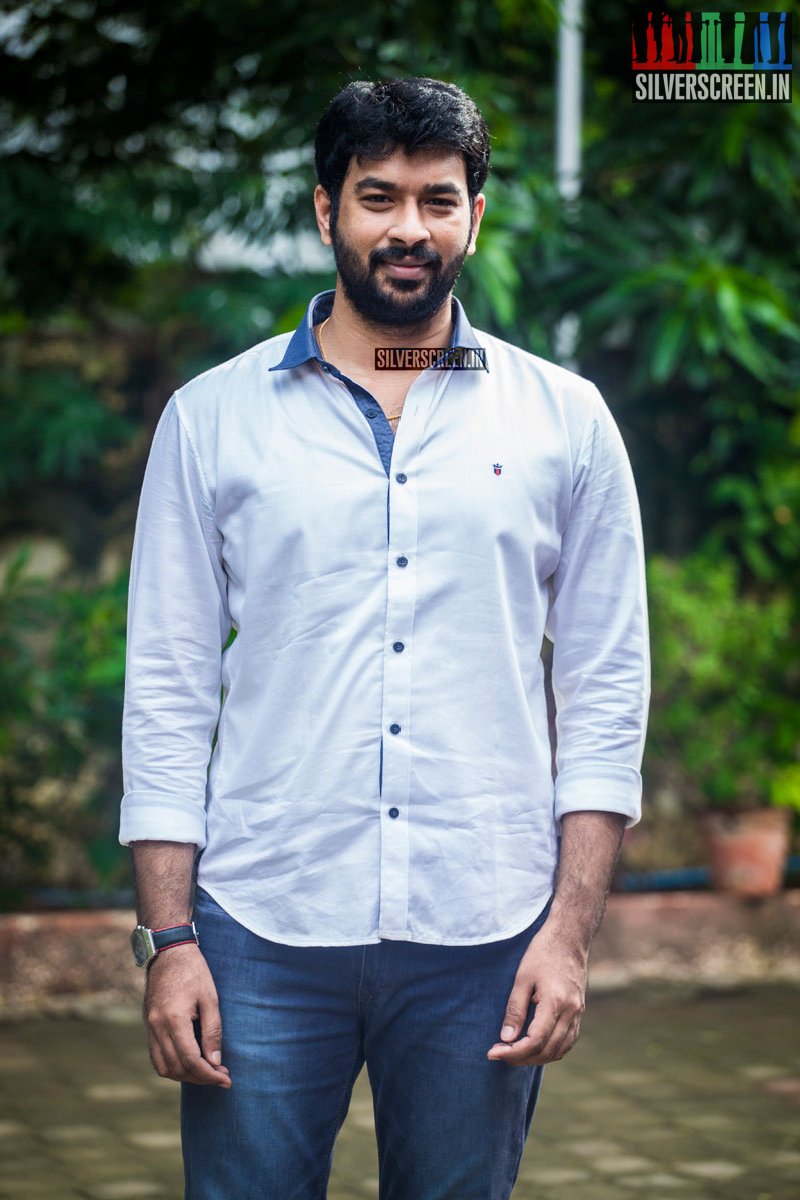 To think of something new, something unheard of, is the biggest challenge.
To think of something new, something unheard of, is the biggest challenge.
I remember writing a ‘love failure song’ from the perspective of a man, which goes like “Ini cellphone bill-um illai, Selai vaangum thollai illa“(no more worries about cellphone bills, nor about buying sarees for her). That song was actually about thanking the woman who had dumped him.
Every aspect of the song, right from the genre, to the tune and the situation affects the time Vivek takes to write a song.
Sometimes the tunes aid the lyrics, sometimes they constrain them. Some songs take just a few hours to write. The song ‘Yaar’ from Enakkul Oruvan was written just minutes before the singer recorded it. On the other hand, I took around 3 days to write a song, which I do not think will be released anytime soon. I used the technique called sledai in the song – where the same phrase can mean two entirely different things. For example, thoduthalai ketkinren can mean ‘I seek your touch’, whereas thodu, thalai ketkinren would mean, ‘touch me, and I’ll ask for your head’. It was even more challenging since I had to set it to a tune.
The earliest interview of a lyricist, I remember watching on TV, was that of Vairamuthu. It was probably in 2000, post the release of Alaipayuthey, where he spoke about the song ‘snehithane’. He said that the tune that A.R. Rahman gave him was tough to set words to. After trying out several words like ‘nanbane’ and ‘kalvane’ he finally chose ‘snehithane’. In fact, at a recent event, Vairamuthu shared some interesting trivia. Out of the 8,000-odd songs he has written, around 7,960 of them were written according to the tune composed. I have always wondered as to why lyricists are put through this trying task – as if writing the songs isn’t taxing enough. Vivek, though, prefers writing lyrics to match the tune.
Lyric writers do have more freedom when it comes to writing first. But I prefer matching my words to the tune. Music has a soul, so when I have to write according to the tune, I have to concentrate only on my contribution. Composers like Santhosh and Imman have created magic while setting a tune to my lyrics. When I listen to the end product, it sounds so much better than what I would have imagined it as.
The most important aspect taken into consideration when it comes to setting lyrics to a tune is sandham (meter). To make sure the words fit into the sandham is one of Vivek’s top priorities.
Take for example, the song poo avizhum pozhudhil. There is a line that goes degham megham aagum or nilaye (‘’it’s time for our bodies to become clouds). The word nilaye is sung on a flat note, and so I used the word ‘nilai’ (level). Not many might get the reason, but I believe it has an effect. The next line goes megham koodum naeram poo mazhaiye (and when clouds meet, it rains flowers). The line ends on a high note. I could have substituted poo mazhaiye (flower-rain) with thaen malarey (sweet flower), but that high note compliments the feeling of rain rather than a flower blooming.
See, this is why I like listening to the tune first!
Following the sandham and maintaining the soul of the music with our words is how we respect the listeners. Just because we cannot find the right words, mending the lyrics to our whims will definitely strike the wrong note with the listeners. But many do this, I may have too. But this must not become a habit. Music must retain its soul. Therefore, I take utmost care while writing.
His songs about raining flowers to ‘bimbilika pila pee pee’ (gibberish rendered famous through an old classic) as the starting line in his song Shoot the Kuruvi (Jil Jung Juk), are as similar as chalk and cheese.
No lyric writer wants to be stereotyped. I don’t want to be known as ‘the guy who writes this type of songs’. And the situation of ‘Shoot the Kurivi’ and Jil Jung Juk as a whole, was very wild and inspiring.
One of the latest songs that has garnered Vivek much praise is the ‘Manidhi‘ from Iraivi. The word ‘manidhi‘ (woman) was coined by Vivek, as an alternate to manidhan (man), a word considered gender neutral but still used to refer to a male.
(Watch out for this world
That makes you guilty for its mistakes
The same breast that feeds a man milk
Awaits you with poison
Beware, my love)
I do have strong feminist thoughts in me and that is reflected in the song as well. We all talk about male chauvinism. Financial insecurities, physical and mental abuse are issues we relate to it. But there is male chauvinism in the language we speak every day and this has gone unnoticed so far. In Tamil, there are words like manidhan (man) nanban (friend), valiban (youngster) that are male gender specific. There are no words like manidhi, nanbi or valibi. When we say manidhan we generally assume that women too naturally fall under the category, but it still indicates a male. I wanted to break this notion.
Also, blaming the victim for molestation and sexual abuse by shaming her clothes is unjust. I wanted to question those who make such remarks.
Fun Fact: Vivek is now trying to find out if there is a way to legitimize the word manidhi by adding it to the Tamil dictionary. Filmmakers are approaching him to ask if they can use it as a title to their next film!
Santhosh Narayanan, quite easily among the most interesting music composers we have seen in the past few years, is who Vivek closely associates himself with. Santhosh by far has been a recluse – he does not give interviews, or talk much at public events. But Vivek says that he is perhaps among the happiest and most jovial people to work with.
We don’t realise when the fun ends and work begins. But he works very hard to innovate in his music. He always insists on experimenting; every time I meet him in the studio, he is busy listening to his tracks trying to substitute one instrument with the other.
Interestingly, before he entered Kollywood, apart from popular personalities like Mani Ratnam, Shankar, A. R. Rahman, Rajinikanth etc., Vivek looked forward to working with two composers: one, his favorite music composer Ilaiyaraja, and the other was this up and coming composer who caught his fancy.
All my favorite songs of that period had one name in common: Santhosh. It felt great that he was the first composer I worked with.
‘Songs are not the same anymore, there’s no meaning to them’ is a common complaint these days. The use of colloquial Tamil in songs has been increasing over the years. While they do have some charm to them, most listeners feel that there is a lack of poetic beauty to such songs.
There is a difference between writing a poem and a song. The poem belongs only to the poet. It contains his own personal views. But a song is the collective effort of many and there is the need to fulfill the needs of the situation. You have to take into consideration the character for whom the song is done. Not every character can be a poet; therefore, colloquial words lend authenticity to the song.
Vairamuthu happens to be Vivek’s biggest inspiration till date. He talks about the ‘Sakalakalavallavan’ of lyric writing.
Forget sandham or the type of Tamil used – any song or writing must touch our hearts. I don’t think anyone does it better than Vairamuthu sir.
Kaanatha Anbai Naan Indru Kandaen
Kaayangal Èllam Poovaga
Kaamangal Ondrae Èn Kaathal Alla
Kandaene Unnai Thaayaaga (Oru Jeevan Azhaithadhu – Geethanjali, 1985)
(This love,
Is like nothing I have felt,
It heals my wounds.
I see my mother in you.
For,
Love is not just about lust.)
I don’t know if someone can write about love better than this. Or this:
Aathukula Naethu Unna Nanachaen
Vetka Niram Pogae Manja Kulichaen (Pothi Vecha – Mann Vasanai, 1983)
(I was in the bath when I thought of you; I used turmeric to mask my reddening face)
Recommended
Look at his imagination in this one. To think that coyness has a color, and the woman tries to cover it up from the one she loves…
The sound ‘zha’ is unique to Tamil, (Tamizh to be precise). Forget the trouble non-Tamilians go through to get it right, we all know native Tamilians who cannot pronounce it right. Pehaps it is the beauty in that difficulty is what makes Vivek think that any words that has ‘zha’ in it, makes the song sound beautiful.
Tamizh, Azhagu… anything with ‘zha’ simply sounds very musical. In fact, I have used a rather unheard word – suzhali in one of my next songs. It means, ‘a girl who cheats’.
‘Versatile’ is how Vivek wants to be known as, in a few years.
I want directors/composers to approach me no matter how different the genre of song is. A bit of Poo Avizhum, a bit of Vaadi Rasathi and a little of Shoot the Kuruvi... I am heading towards that goal.
